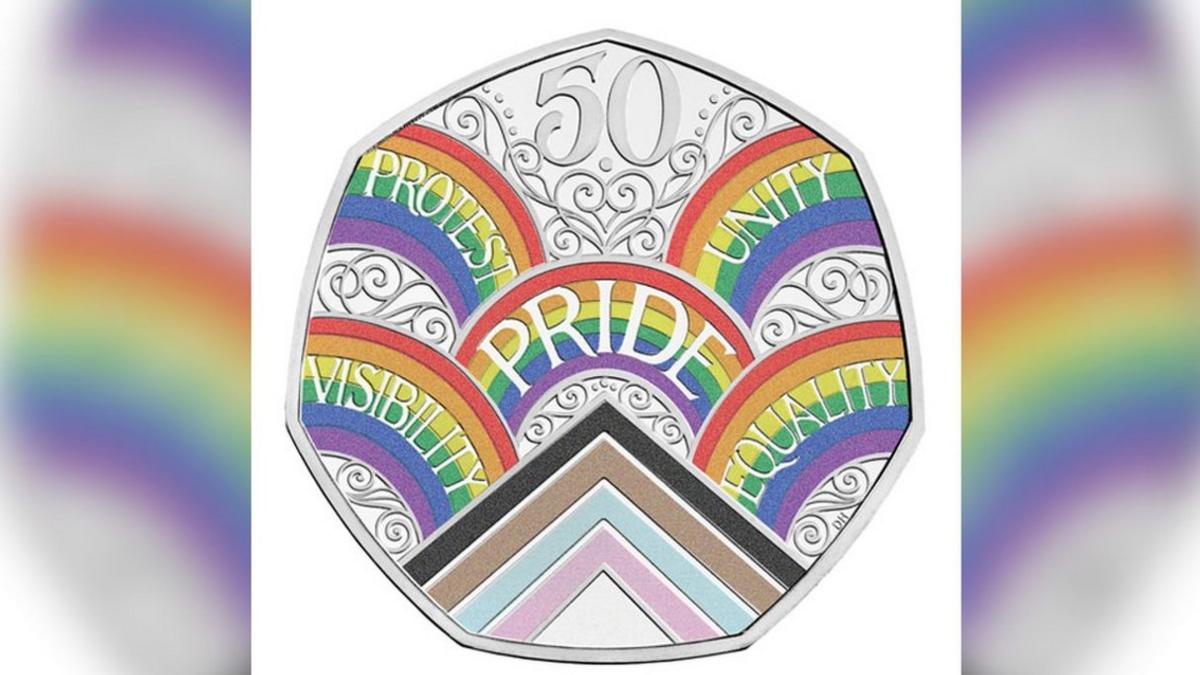Pride in London: From protest to party and back again
- Published
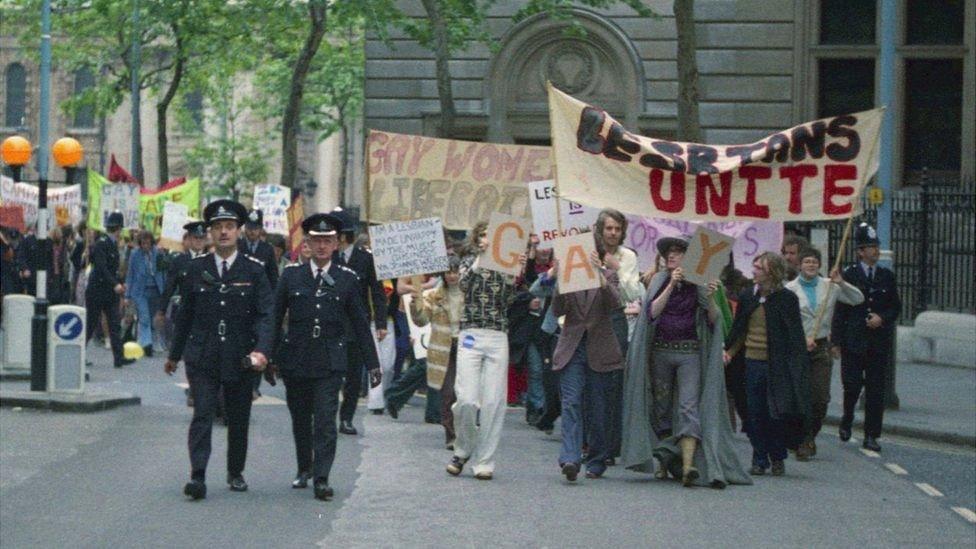
The first Lesbian and Gay Pride march in central London, on 1 July 1972, was organised by the Gay Liberation Front
Fifty years ago about 2,000 people took part in London's first official Lesbian and Gay Pride event, as part of a protest against how the police treated that community.
The marches have continued to this day but now the hundreds of thousands of people who take to the streets are joined by celebrities, corporate sponsors and politicians.
Pride in London has evolved over the years, with some questioning its priorities. However, the message of fairness, equality and inclusivity has been a constant.
Policing Pride
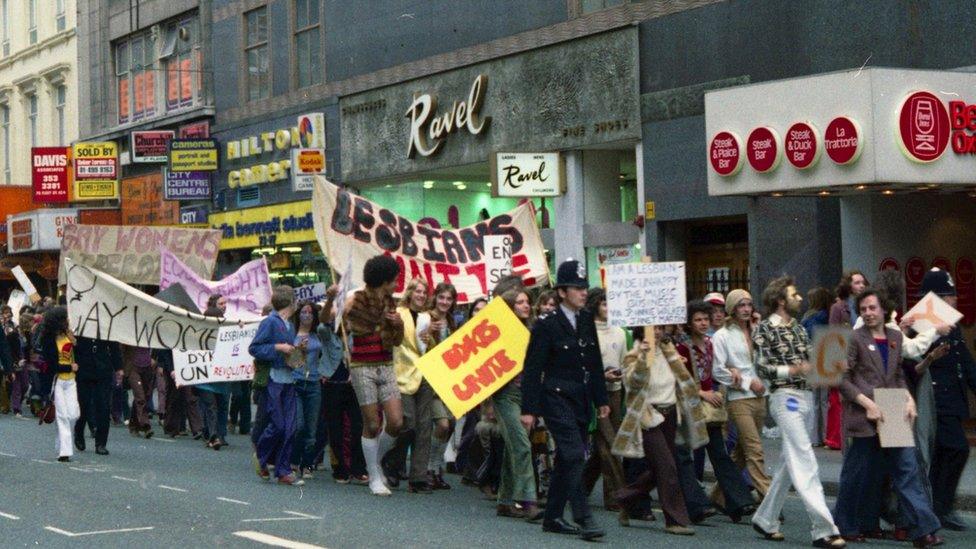
The first Lesbian and Gay Pride marches through central London
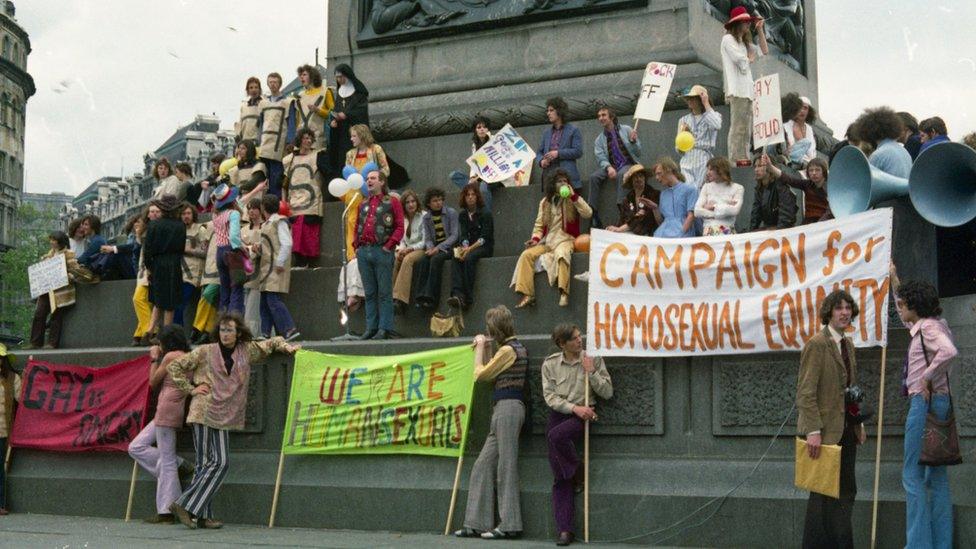
Pride protesters gathered in Trafalgar Square on 1 July 1972
The first Lesbian and Gay Pride event in the UK, on 1 July 1972 was a relatively small affair, although its roots are in a gathering a few miles away in Highbury Fields held in November 1970.
That autumn some 150 members of the Gay Liberation Front (GLF) held a torchlight vigil to protest against police harassment of gay people.
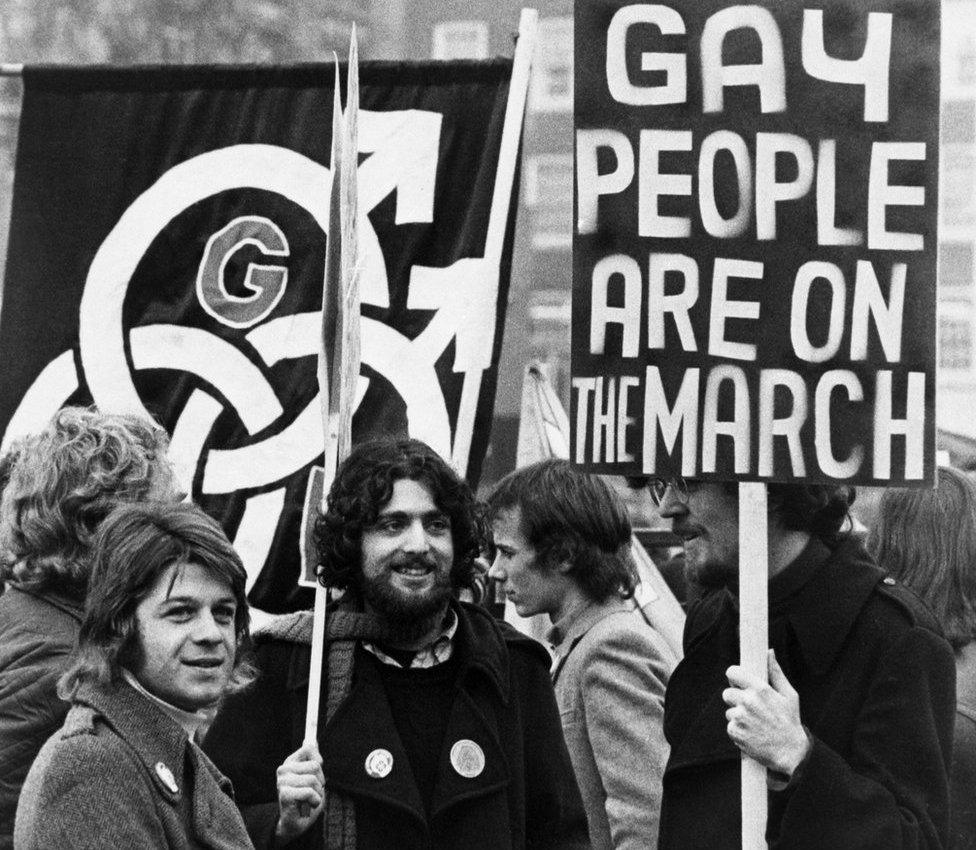
The GLF marches of the early 1970s were staged in protest at police harassment of gay people
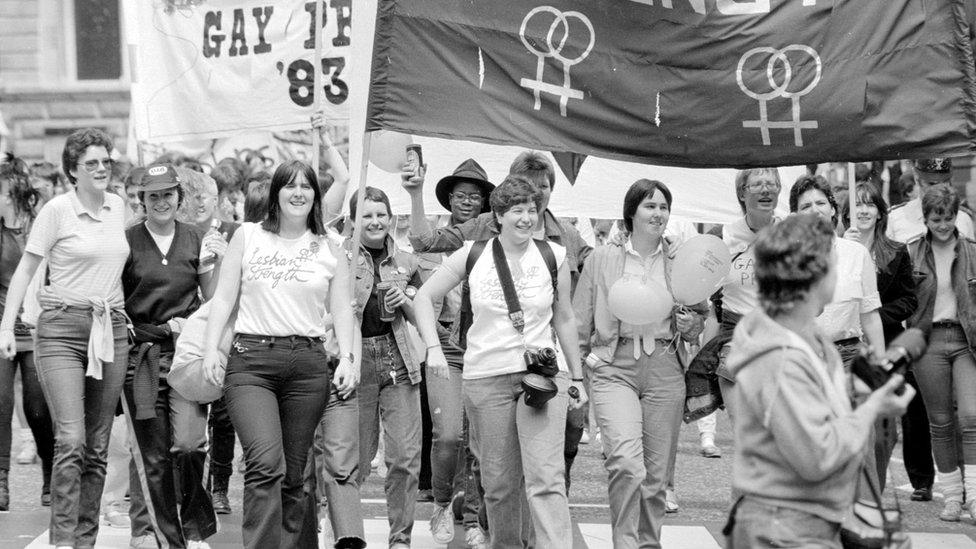
Lesbians played a key and very visible role in GLF marches throughout the 1970s and 80s
People like Andrew Lumsden, who attended the first London Pride march in 1972, saw those events as the beginning of a huge change.
"There was no nervousness at all because we were with our own people, we were with our friends. The feeling was that we had broken down a barrier that was put in front of us that said, 'you must not be out, you must not be seen'," he said.
Stuart Feather and Andrew Lumsden took part in the first London Pride march 50 years ago
Mr Lumsden, who will be marching alongside some of the original Gay Liberation Front members this year, says it was also about defying the anti-gay establishment.
"One great incident was where a policeman winked at me. Now, they weren't there to protect us. They were there to make sure that they could arrest us if they thought we were going to damage anything.
"A policeman, standing in a line so his colleagues couldn't see, gave me a long, slow wink."
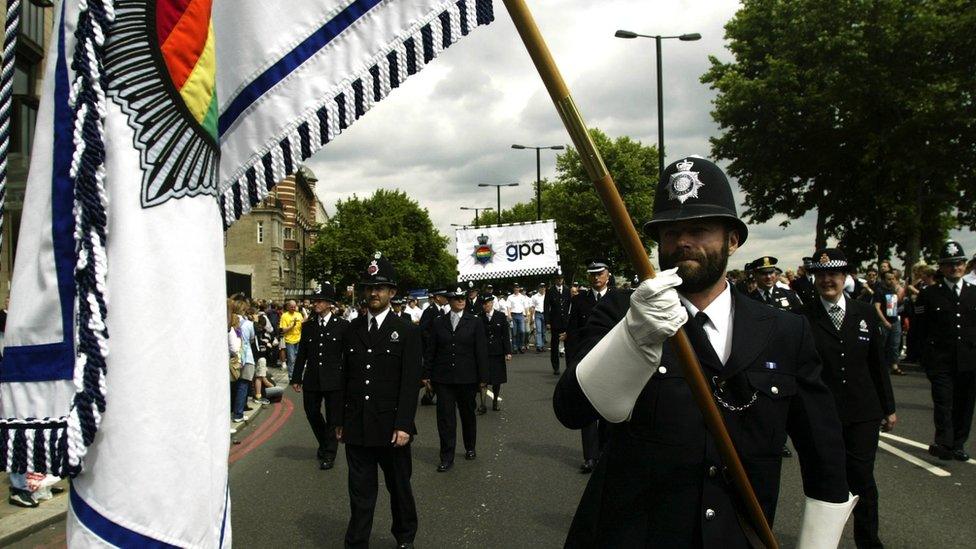
Police officers weren't allowed to march in uniform at Pride until 2003
The relationship between the LGBT community and the police has at times been a fraught one.
Metropolitan Police officers weren't allowed to march in uniform until 2003, while petitions by campaigners to stop police marching in future London Pride events followed the death of George Floyd in May 2020.
Politicians at Pride
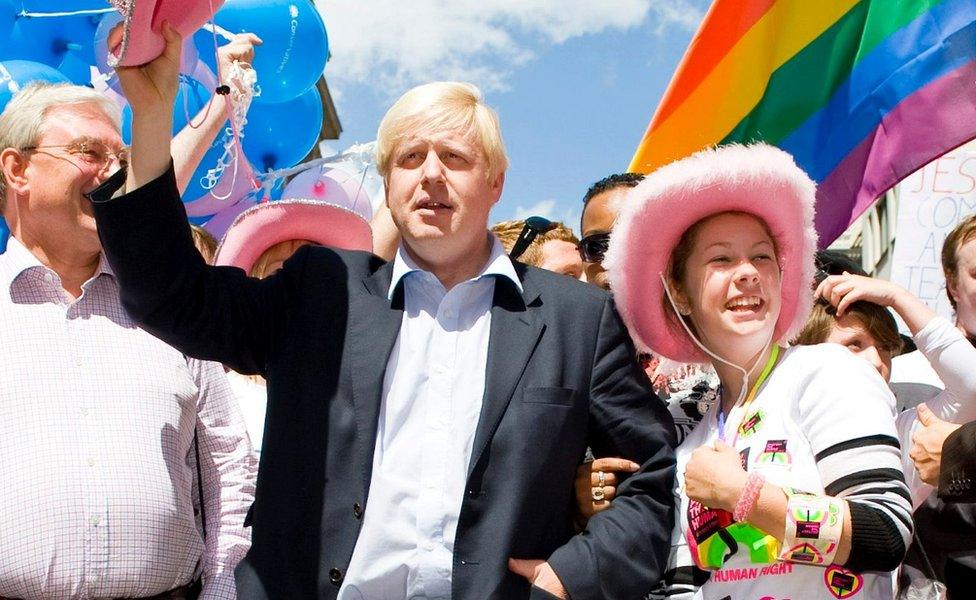
Prime Minister Boris Johnson, then London mayor, at the 2008 Pride march
While the first marches may have been held in defiance of politicians, it's somewhat different these days - every directly elected London mayor has attended Pride at some point.
In the 1980s, Pride focused on the Aids crisis and the introduction of Section 28, which saw the Conservative government of the day ban the promotion of homosexual lifestyles in schools.
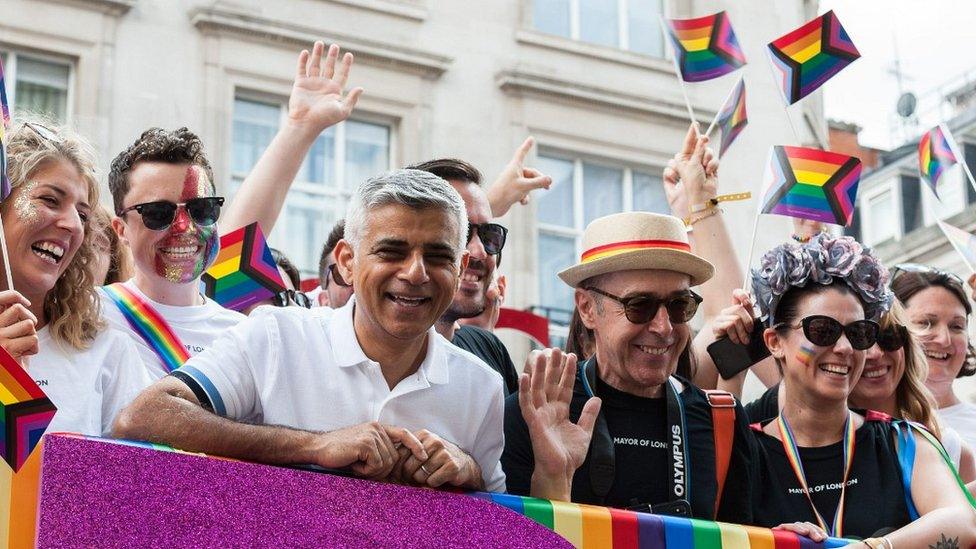
London Mayor Sadiq Khan at the 2019 parade - the last one to be held on account of the coronavirus pandemic
More recent Pride events have centred on the rights of transgender people, including calls for reform of the Gender Recognition Act.
Recent government U-turns on banning conversion therapy for trans people will no doubt be a key protest point for 2022.
The power of protest
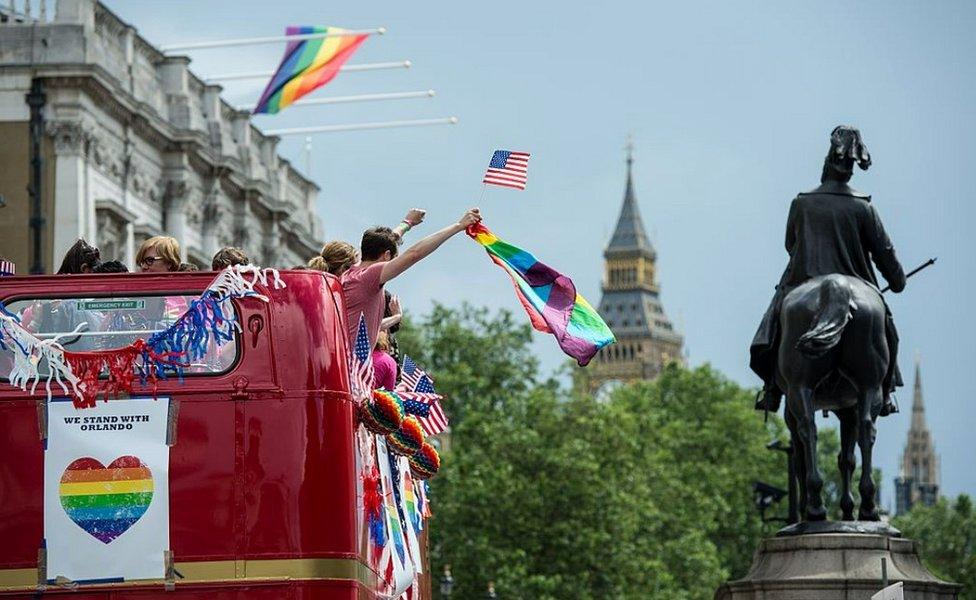
Pride in London 2016 was a poignant affair as people remembered those who died in the Pulse nightclub shooting in Florida a few days before
Pride in London has over the years also reflected world events, and the marchers have never been afraid to show solidary with the global LGBTQ+ community.
In 2016, days after a shooting in a bar in Florida in which 49 people died, London's Pride march went ahead with a more reflective feel than in years gone by. Tributes were paid to the victims but there was also a show of defiance against people who wished the community harm.
The same is expected on Saturday following recent events in Norway, where two people were killed and others were injured in an attack on an LGBT venue in Oslo.
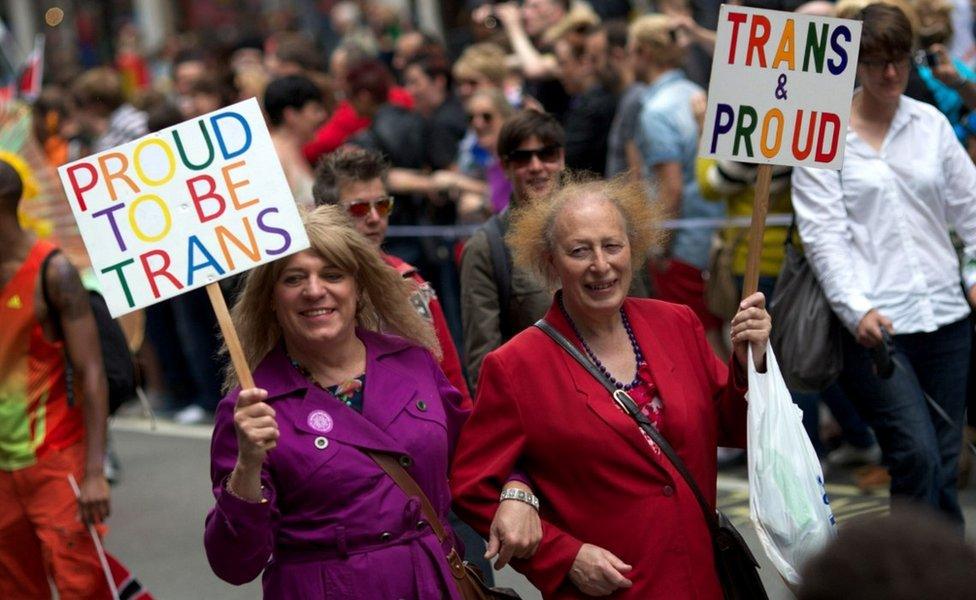
Trans rights have been at the heart of London Pride for several years
Nevertheless, the parades have also been a chance to celebrate change for the better.
The repeal of Section 28, the legalisation of same-sex marriage, and LGBTQ+ people being allowed to adopt children were all seen as pivotal moments to be enjoyed at Pride.
A fractured community
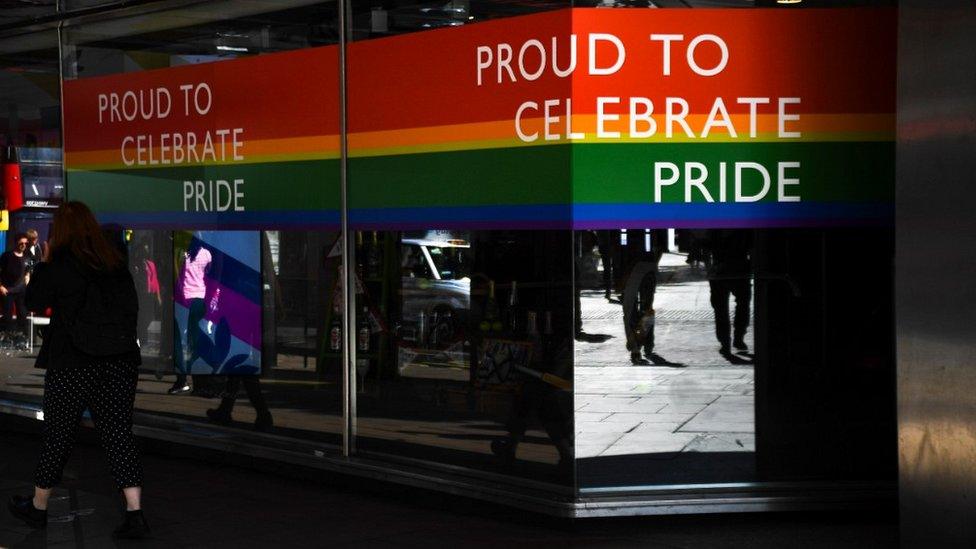
London businesses have been accused of cashing in on Pride without contributing to the cause
As the march has grown over the years, there have been fears among people within the community that Pride has lost its way - that corporate sponsorship has replaced the protest element of the event with an easy PR stunt for businesses.
This claim has been rejected by Pride in London organisers, who said corporate sponsorship covered a lot of the gathering's overheads, such as security and paying for road closures and insurance, meaning it could remain a free event.
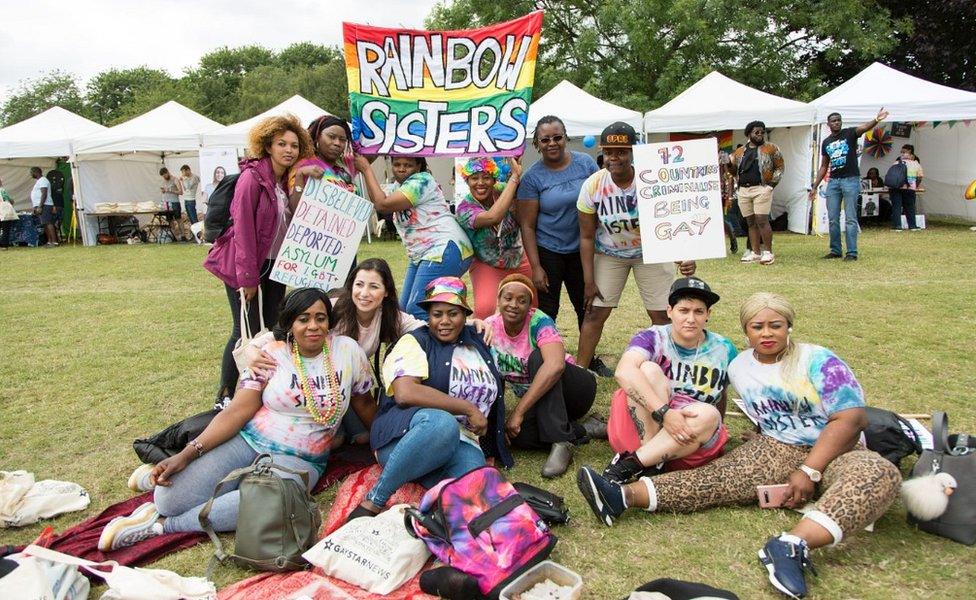
UK Black Pride in 2019 - a celebration of LGBTQ+ people of colour
Others have been dismayed at events that have taken place at Pride, including when members of the lesbian and feminist group Get The L Out gathered at the start of the parade in 2018.
The actions of the protesters - described at the time as bigoted by Pride in London - reflected, though, that there are those who wish to separate the "LGB" from the "T", arguing that transgender rights can impinge on the rights of gay people, especially lesbians.
After decades of solidarity, it's fair to say there is an increasing number of people who feel the event has lost its way - that the culture around the Pride march and the rainbow flag doesn't represent them.
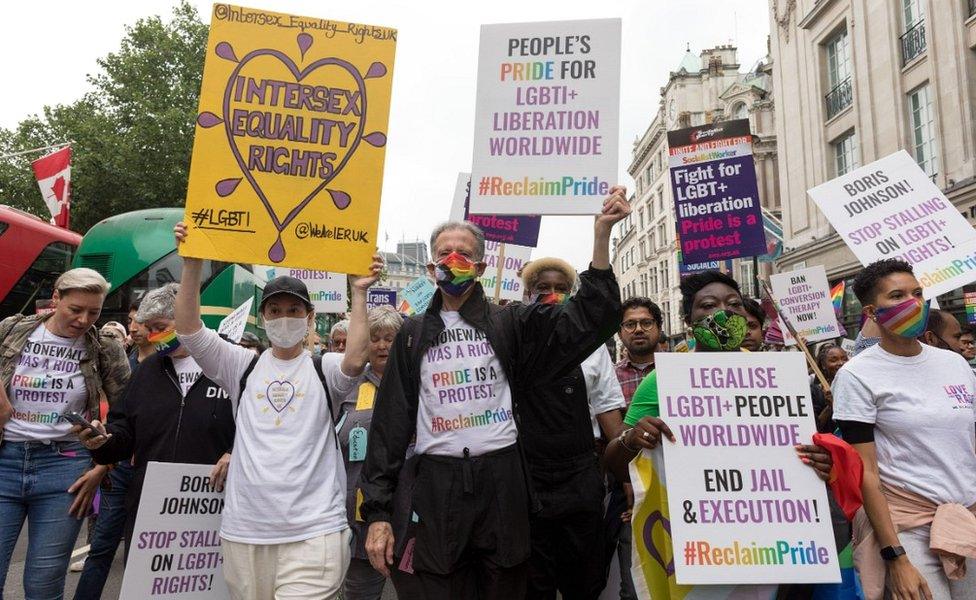
Reclaim Pride held its first march in 2021
There are several groups that have splintered off from Pride, focusing on specific sections of the LGBTQ+ community.
The first large-scale UK Black Pride event happened in Vauxhall in July 2018, and in 2019 the first UK Trans Pride march took place.
Last year, some of the original Gay Liberation Front protesters - including human rights campaigner Peter Tatchell - held a Reclaim Pride march.
Taking to the original route of the 1972 march, they called for the return to the original point of Pride, as a celebration of and a protest in support of LGBTQ+ rights, without the modern-day corporate sponsorship and commercialism.
A fresh start
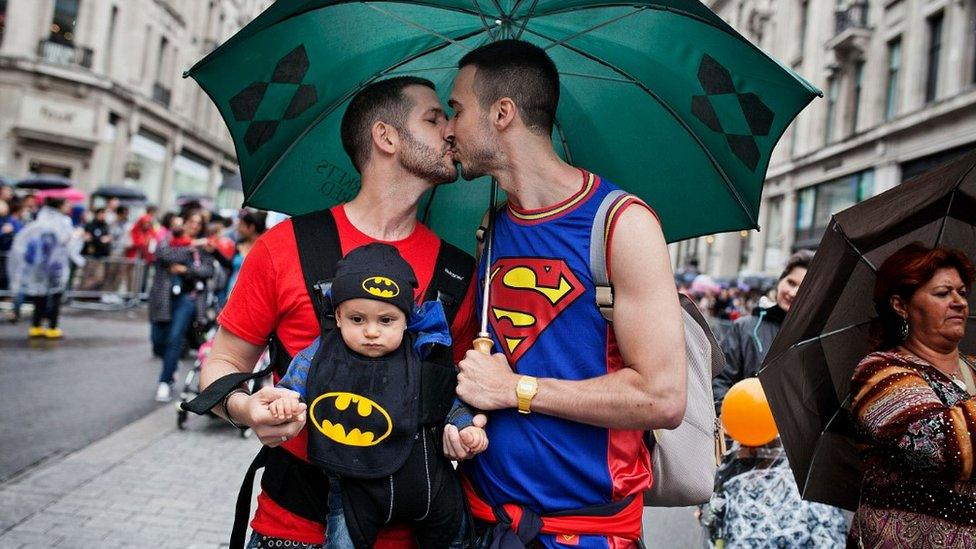
Celebrating political change has been a feature of more recent Pride events
While there have been several smaller Pride events throughout lockdown, there hasn't been an official Pride in London march in the capital since 2019 due to the Covid-19 pandemic and the associated lockdowns.
Since the last march, the make-up of Pride in London has changed. In March 2021 its advisory board resigned following a dispute about alleged institutional racism in the organisation, and later that year its co-chairs also stepped down.
There is now new leadership and with it a fresh vision, with those at the helm promising to learn lessons from the past and to return Pride to its activist roots.
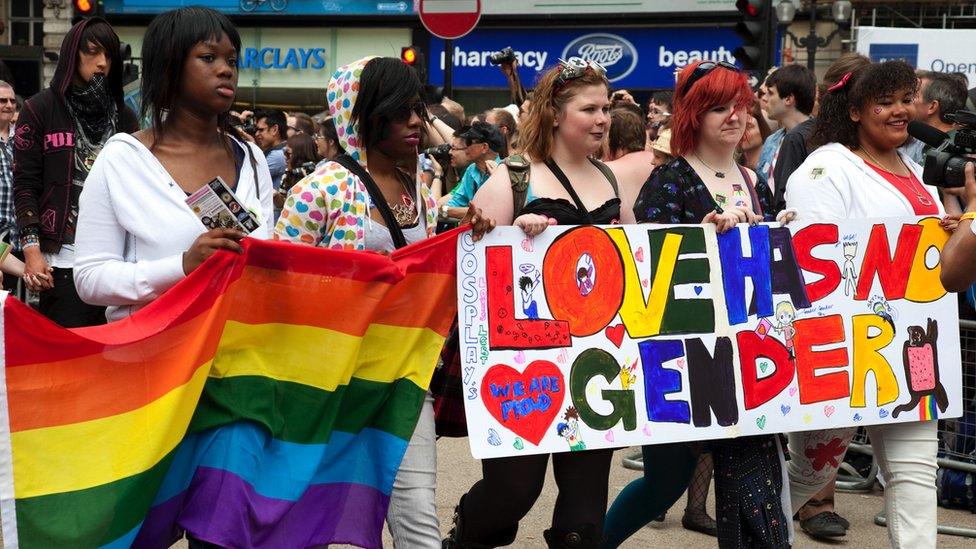
Placards and signs have always been a powerful way to get a message across
For the 50th anniversary, organisers plan to follow the route of the original 1972 march, acknowledge the evolution of Pride as a movement, celebrate achievements of the past 50 years, and try to unite the somewhat fragmented LGBTQ+ community under the theme of All Our Pride.
A huge turnout is expected in central London, with some 40,000 organisations, businesses, charities and community groups represented on the march this year.
Pride events in London have evolved over the years, in ways seen as both positive and negative, but the message from Pride in London's organisers in 2022 is clear - Pride is not just a celebration, it is most definitely still a protest.
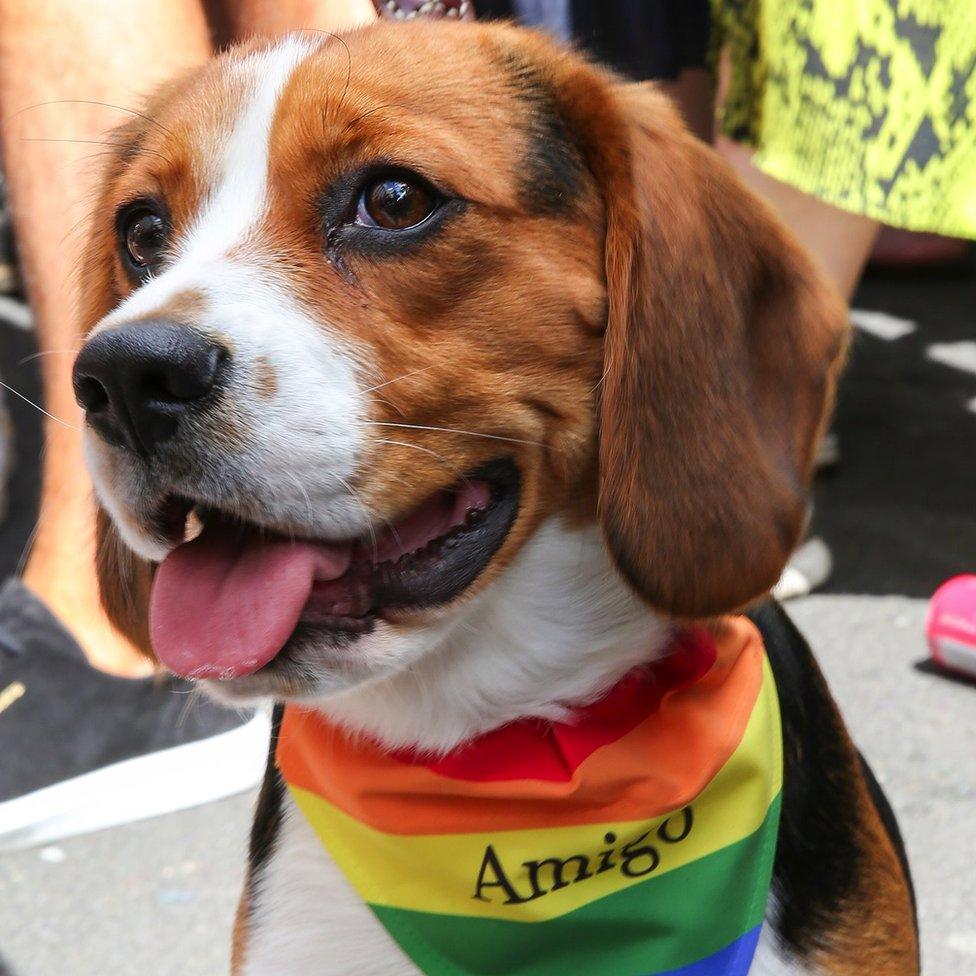
Pride isn't just for LGBTQ+ people, it's also for their allies (human or otherwise)
All images subject to copyright

Follow BBC London on Facebook, external, Twitter , externaland Instagram, external. Send your story ideas to hellobbclondon@bbc.co.uk
Related topics
- Published28 June 2022
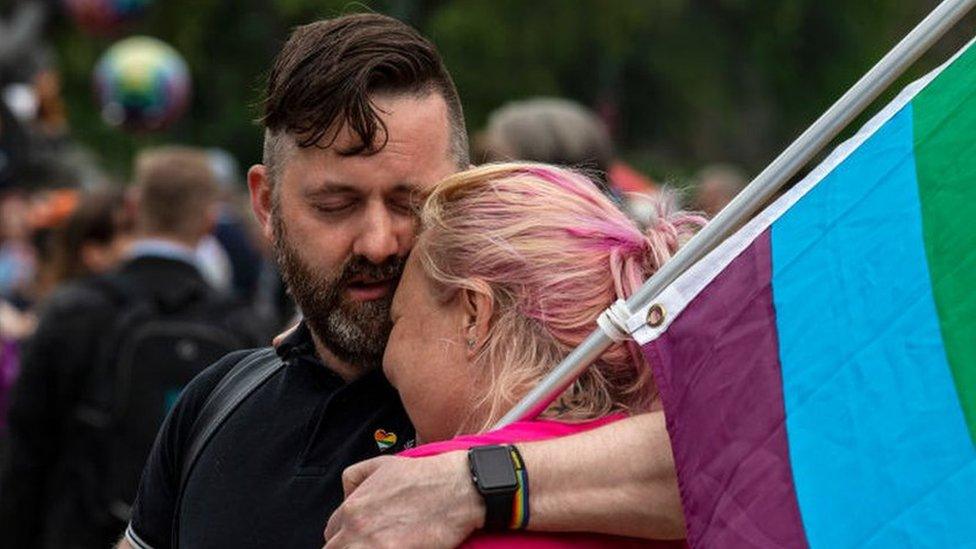
- Published27 June 2022
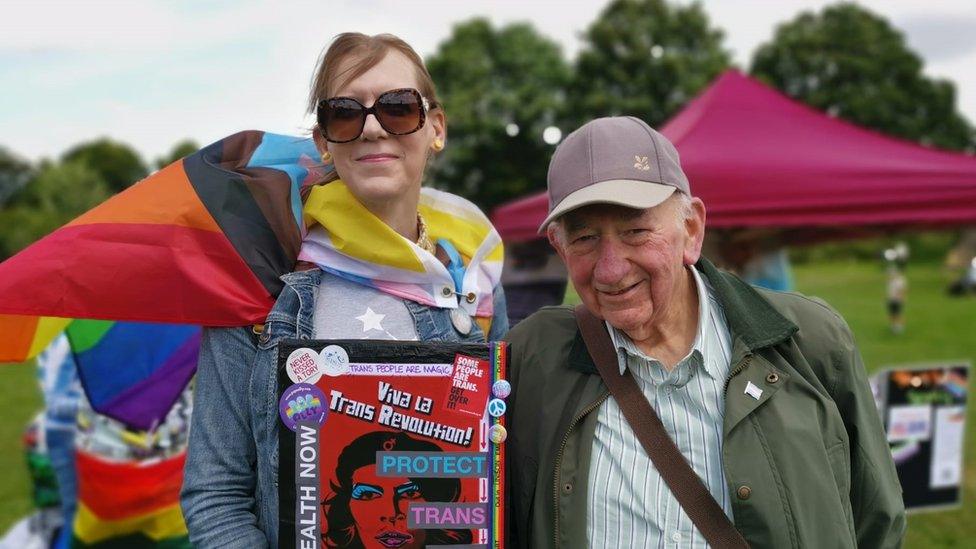
- Published19 March 2021
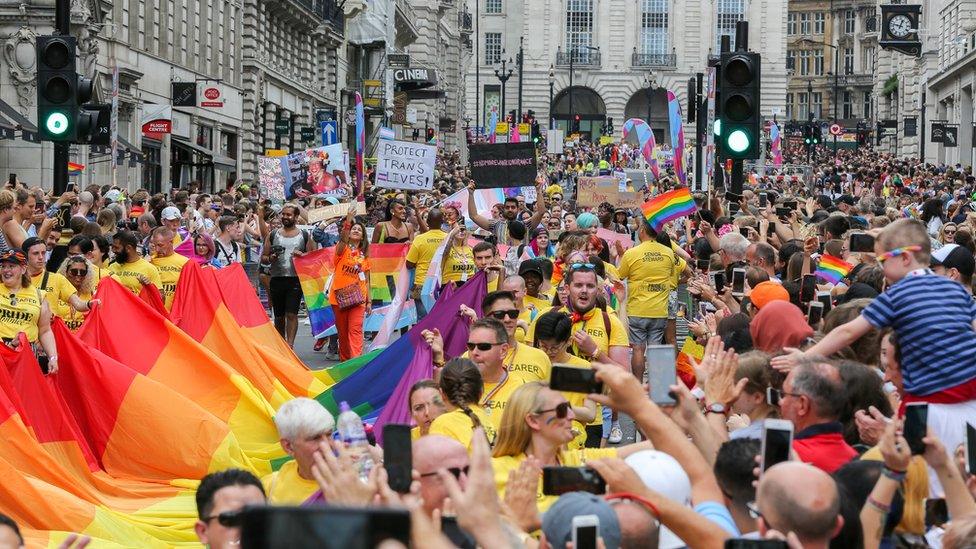
- Published28 January 2022
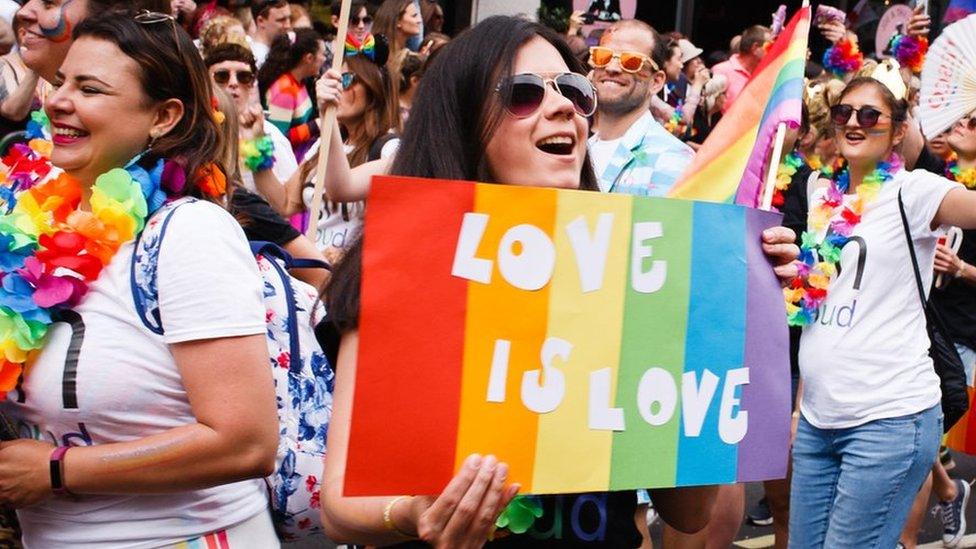
- Published17 June 2022
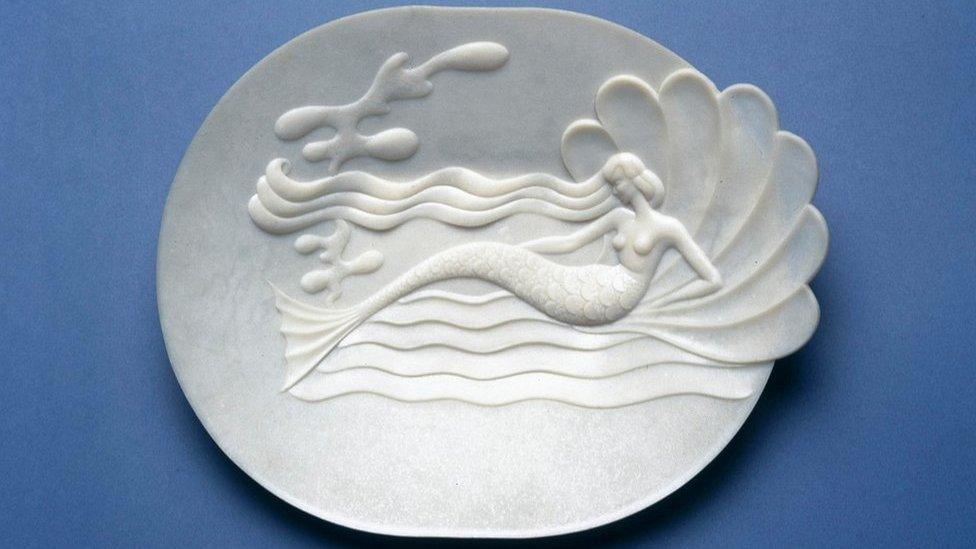
- Published18 May 2022
